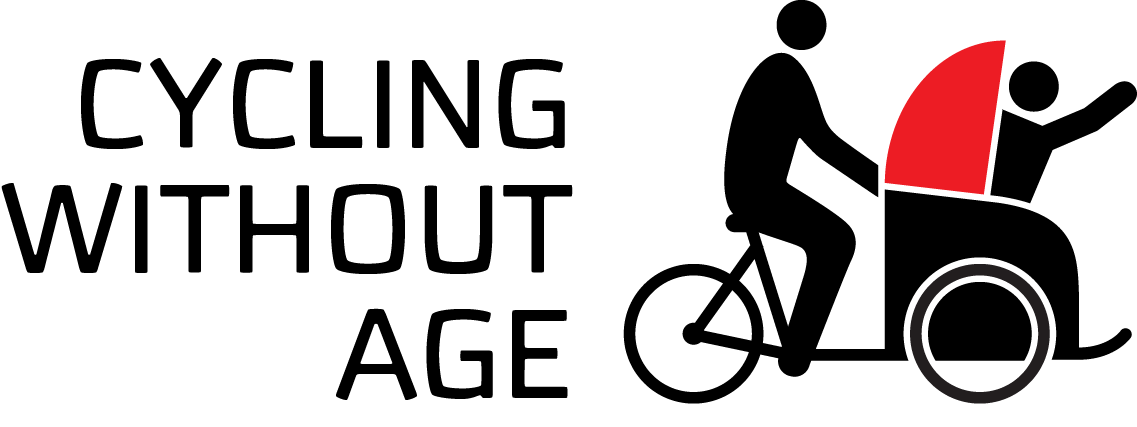
08 Sep Cycling Without Age (CWA) or EVERYONE HAS THE RIGHT TO FEEL THE WIND IN THEIR HAIR
CYCLING WITHOUT AGE or EVERYONE HAS THE RIGHT TO FEEL THE WIND IN THEIR HAIR In: Bicycle traffic
Cycling without Age, is the name of an initiative that was launched in Copenhagen in 2012. Under the motto “Everyone has the right to feel the wind in their hair”, free rickshaw rides are offered to people who can no longer cycle themselves. The aim is to enable participation in active social life, to offer mobility in old age and to combat social isolation and loneliness. The initiative spread quickly in Denmark and soon afterwards in many countries around the world. There are 2200 regional chapters with over 3000 rickshaws in more than 50 countries in Europe, North America, Asia and Australia and New Zealand (as of March 2020). The concept reach Austria in 2014, when Elke Fitz launched the iniciative “Cycling without Age” in Lustenau (Vlbg) in collaboration with the local mayor. Lustenau started with two rickshaws and the concept was soon adopted by other federal states. As the representative of the NGO in Austria, Fitz supports the creation of new locations, helps with the procurement of rickshaws, gives driver safety trainings and tips on practical implementation. There are also rickshaws, which – such as “2inFahrt” in Vienna – do not operate under the same title, but with a similar concept. The advantages of rickshaw rides are manifold, it is about “enjoying the little things in life” (Fitz). The conversations (between rickshaw drivers and passengers) reduce the feeling of social isolation, the well-being of the elderly increases and their mood on the days with rickshaw rides brightens, age differences are used to listen to one another and to learn from one another. The rickshaw drivers, called “pilots”, are volunteers. Rickshaws are sometimes stationed in the old people’s homes and operated there by the organization. There are specific bases elsewhere used by several homes and facilities.
For further reading: https://en.wikipedia.org/wiki/Cycling_Without_Age https://cyclingwithoutage.org/ https://www.spiegel.de/consent-a-?targetUrl=https%3A%2F%2Fwww.spiegel.de%2Fpolitik%2Fhennef-projekt-radeln-ohne-alter-wind-in-den-haaren-a -00000000-0002-0001-0000-000165454537 & ref = https% 3A% 2F% 2Fde.wikipedia.org% 2F


